This article was co-authored by wikiHow Staff. Our trained team of editors and researchers validate articles for accuracy and comprehensiveness. wikiHow's Content Management Team carefully monitors the work from our editorial staff to ensure that each article is backed by trusted research and meets our high quality standards.
There are 15 references cited in this article, which can be found at the bottom of the page.
This article has been viewed 73,352 times.
Learn more...
Donating your eggs can be a great way to earn extra income and help a family that's struggling to conceive. Egg donation can result in a large payment, which you can then use towards debt or other financial goals. In order to get paid for donating your eggs, you will first need to apply for donation through a licensed fertility clinic. You will then sign a contract for payment for donating your eggs. Once the donation is complete, recover properly so your body remains healthy and fertile.[1]
Steps
Applying to Donate Your Eggs
-
1Locate a licensed fertility clinic. Search online for a licensed fertility clinic in your area. You will need to go in person to the clinic during the process, so opt for one that is easy for you to get to. Check if the fertility clinic has a license to practice, usually noted on their website. You can also call them directly to confirm they are licensed.
- Ask friends who have donated their eggs before to recommend a clinic that you can apply to for egg donation. They may be able to suggest a good, reputable fertility clinic in your area.
-
2Apply online for egg donation. Many fertility clinics have an online application system for egg donation. You will complete a questionnaire that asks about your birth control usage and your medical history. You will need to disclose if you have had an STD and if you are on any medications.[2]
- As part of the application, you will also need to disclose your family’s medical history, including the medical history of your parents and grandparents.
Advertisement -
3Wait three to five business days to be contacted. Depending on the fertility clinic, you will usually hear back about your online application within three to five business days. The clinic will contact you directly to let you know if you have been chosen as a candidate for egg donation. You will then need to agree to move forward in the application process.[3]
-
4Take tests to confirm you are healthy. The clinic will require you to undergo physical tests and blood work to confirm you are in good health. You will be checked for any diseases and abnormalities. You will also need to meet with a genetic counselor and a psychologist.[4]
- Once you pass all the required tests, you will be approved as a donor.
-
5Wait to be selected by a recipient. The fertility clinic will let you know when you have been chosen by a recipient to be their donor. Once this happens, you will need to start taking birth control to synchronize your menstrual cycle with the recipient’s cycle. This will require an injection of a hormone stimulant into a fatty area on your body twice a day.[5]
- You will need to take birth control for about six weeks. After six weeks, you will be able to go into the clinic to complete the egg donation.[6]
Receiving Payment For Your Eggs
-
1Discuss your egg donor fee with the fertility clinic. The standard fee for egg donation ranges from $6,000 to $10,000 USD per donation. The exact amount will depend on state guidelines and the discretion of the fertility clinic. In some cases, recipients bid a certain amount on donor eggs. The fertility clinic should detail the exact amount offered for your eggs by the recipient.[7]
- Some fertility clinics offer more money if you donate your eggs more than once. Discuss this option with the clinic if you are planning to donate your eggs again in the future.
-
2Have your airfare and other expenses covered, as necessary. The fertility clinic will usually offer to cover your airfare, your accommodation, and other expenses if you need to travel to the clinic. They will also cover all medical expenses and medical insurance associated with the donation.[8]
- You will need to plan to stay in bed for several days after the donation. The clinic will cover the cost of accommodations for you to rest before you fly home, if needed.
-
3Sign a contract for payment for your eggs. Once you agree to donate your eggs to the recipient, you will sign a contract that specifies payment for your eggs. You will not be paid in full until after the donation has been completed.[9]
- The contract may also specify if you are going to be an anonymous donor, which means you will not know who the recipient is or where your eggs will end up. The recipient will also not be given any personal information about you so you remain anonymous.
-
4Donate your eggs at the clinic. About 35 hours before the retrieval date for the eggs, you will need to give yourself a shot that stimulates your ovaries. Your ovaries will then produce extra eggs that will be removed from your uterus at the fertility clinic. The eggs are retrieved vaginally with a syringe. There is no surgical cut required for the donation.[10]
Recovering After the Donation
-
1Rest for several days after the donation. Bed rest is required for 24 hours after the donation. Your abdominal area may feel sore and you may feel groggy due to the IV sedation during the procedure. Make sure you rest in bed and do very little physical activity for several days.[13]
- You should menstruate within 10 days after the donation. After your next period, your cycle should return to normal.[14]
-
2Watch for any adverse side effects. The fertility clinic will monitor you for possible issues like Ovarian Hyper-Stimulation Syndrome (OHSS). They will check if you have a sudden weight gain and extreme bloating in the days following the donation. If you notice these symptoms, you should go to the clinic immediately.[15]
- You should also watch for issues like severe cramping, lower back pain, and a general feeling of unwellness. If you experience any of these issues, go see your doctor.[16]
-
3Attend a follow up visit at the clinic. The fertility clinic will schedule a follow up exam within two to three weeks of the donation to ensure you have healed well. If you decide to donate your eggs again, the clinic will require you to wait three months to donate again.[17]
- Most clinics allow you to donate your eggs up to six times, as long as your donations are three months apart.
References
- ↑ https://journalofethics.ama-assn.org/article/fully-informed-consent-prospective-egg-donors/2014-01
- ↑ https://www.eggdonoramerica.com/become-egg-donor
- ↑ https://www.health.ny.gov/publications/1127.pdf
- ↑ https://www.mivf.com.au/sites/mivf/files/2019-11/miv_20ppa5_eggdonationbooklet_webformat_0_0.pdf
- ↑ http://www.genesisfertility.com/wp-content/uploads/2014/09/Egg-Donor-Handbook.pdf
- ↑ https://lomalindafertility.com/treatments/donation/egg-donation/becoming-an-egg-donor/
- ↑ https://www.eggdonoramerica.com/become-egg-donor/egg-donor-compensation
- ↑ https://www.eggdonoramerica.com/become-egg-donor/egg-donor-compensation
- ↑ https://www.legalvoice.org/know-your-rights-egg-donation
- ↑ https://advancedfertility.com/ivf-in-detail/ovarian-stimulation/
- ↑ https://www.urmc.rochester.edu/ob-gyn/fertility-center/donor-oocytes/egg-retrieval.aspx
- ↑ https://www.eggdonorsaustralia.com.au/how-to-donate/egg-donation-process/
- ↑ https://www.uwmedicine.org/sites/stevie/files/2018-11/After-Your-Egg-Retrieval-Without-Embryo-Transfer.pdf
- ↑ https://www.mivf.com.au/sites/mivf/files/2019-11/miv_20ppa5_eggdonationbooklet_webformat_0_0.pdf
- ↑ https://www.eggdonoramerica.com/become-egg-donor/egg-donor-faq
- ↑ https://www.reproductivefacts.org/news-and-publications/patient-fact-sheets-and-booklets/documents/fact-sheets-and-info-booklets/in-vitro-fertilization-ivf-what-are-the-risks/
- ↑ https://thedonorsolution.com/intended-parents/
About This Article
Donating your eggs to a fertility clinic can be a long process, but you can make money from it if you're patient. Search for a fertility clinic near you, then fill out an egg donation application on their website. Once you’ve applied, you should be contacted by the clinic and invited for tests to make sure you’re healthy. If you pass the tests, you’ll be placed on a register, then the clinic will contact you when someone requests your eggs. You’ll have to take birth control pills for 6 weeks and give yourself a shot 25 hours before your retrieval date to stimulate your ovaries. The payment for egg donations is usually $6-10,000. For more information, including what the recovery process is like, read on.

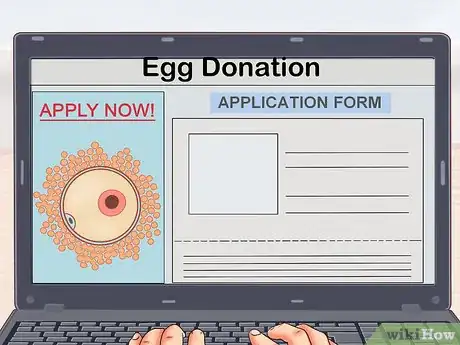

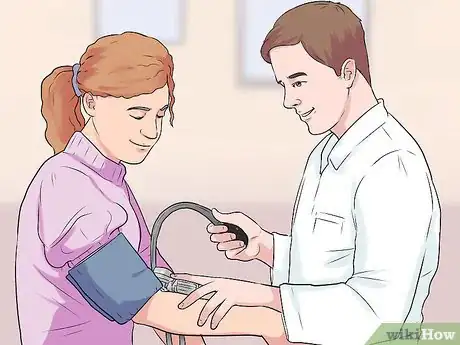




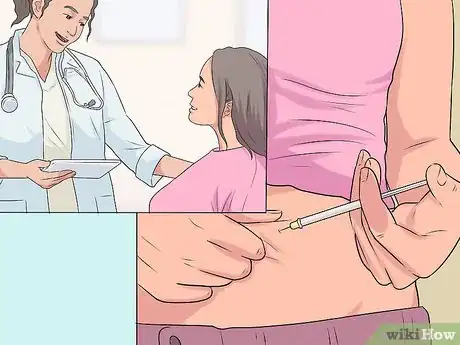

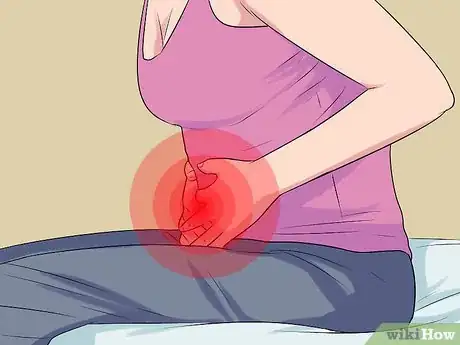


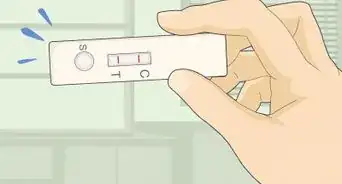
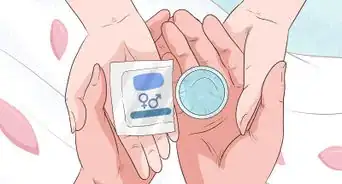


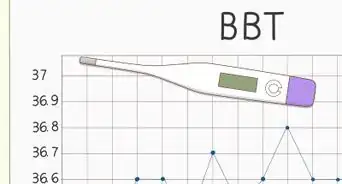

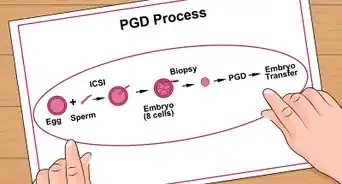














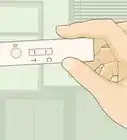
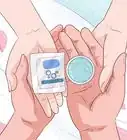




































Medical Disclaimer
The content of this article is not intended to be a substitute for professional medical advice, examination, diagnosis, or treatment. You should always contact your doctor or other qualified healthcare professional before starting, changing, or stopping any kind of health treatment.
Read More...